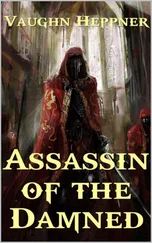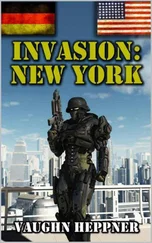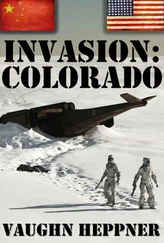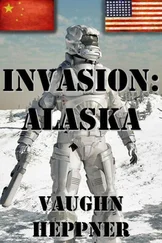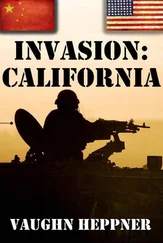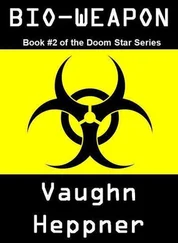“You plan to use grapeshot, sir?”
“The Shah of Iran should have sent his Imperial Guard into the streets, set up machineguns and blown away the mobs in his capital. He could have saved his life and his country from the Islamic Revolution that caused grave havoc to the world for countless decades afterward. He could have sent his soldiers to arrest and then execute the Ayatollah Khomeini.”
“Did they have food riots back then, sir?” Mune asked.
Hawthorne blinked, and he shook his head. “The lesson for us is similar but not identical. I have a sword, and now I need the willpower to use it. Someone practiced deceit against me. The likeliest candidate is Chief Yezhov, but I’ll probably never find the proof. Well, maybe I don’t need proof, not if I’m willing to use the sword. Or in my case, the cybertanks and soldiers in New Baghdad.”
“What are your orders, sir?”
“Call out your men, Captain. We’re going to go pay Chief Yezhov a visit.”
Hawthorne frowned as he stood in an underground room in Political Harmony Corps Headquarters. The video shots he watched were grainy, with occasional white-line wavers. Then everything fuzzed horribly, and the technicians at the boards adjusted controls.
The room was dark except for the wide-screen on the wall. Besides Hawthorne and the PHC technicians, there was Captain Mune in his wheelchair and Chief Yezhov of PHC.
The Chief wore a red uniform with black straps. He was a medium-sized man with round, un-athletic shoulders, pale skin, a weak chin and washed-out blue eyes. He nervously glanced at Hawthorne.
“This is quite normal, I assure you,” Yezhov said.
Hawthorne noted dryly to himself that Yezhov had been doing a lot of assuring the past six hours. The Chief had good reason to be terrified. A little more than seven hours ago, massive cybertanks had smashed through the front barriers. Into the rubble had swarmed bionic soldiers. Sixteen PHC guards had died in the ensuing gun-battle before the rest of the guards had thrown down their weapons, surrendering.
Hawthorne’s counter-intelligence people now combed through PHC computers. He doubted they would find anything damning against Political Harmony Corps. Yezhov had likely set up the real PHC operational headquarters elsewhere, leaving the headquarters in New Baghdad as a shell. The howl against what he’d done would soon begin. He’d have to decide whether he was going to initiate a bloodbath to maintain his authority or if he could continue along old lines but with upgrades.
“How long can the operative beam these images?” Hawthorne asked.
Yezhov cast him another nervous glance. “Perhaps I wasn’t clear enough. The… operative doesn’t know she’s beaming the information.”
“What form of transmitter does she use?” Hawthorne asked.
“It’s a retinal scan,” Yezhov said.
“Explain that.”
“One of her eyes was surgically removed. A bio-replacement was inserted along with a cerebral power-pack. You’re watching what she’s seeing.”
Hawthorne stared at Yezhov. It seemed the Chief of PHC carefully kept his gaze on the screen in order to keep from looking at him. Finally, Hawthorne turned back to the picture.
The grainy images showed war-torn streets: rubble, blasted buildings and overturned vehicles. People moved quickly, usually with their heads bent and shoulders hunched. A soldier stood on a street corner. He wore a Free Earth Corps uniform.
“Where is this again?” Hawthorne asked.
“New Orleans, in Louisiana Sector of North America,” Yezhov said.
“That’s far behind enemy lines.”
“Ah,” Yezhov said. “If you would watch this….”
Hawthorne became absorbed as a giant strode into view. The Highborn wore combat armor, but without the customary helmet. He strode closer, until he filled the screen. His mouth moved as he talked to the operative. The Highborn had pallid skin, and the intensity of his eyes was overwhelming.
“We’ve studied their preferences,” Yezhov said. “They prefer tall women, at least tall in our terms. They enjoy big firm breasts and wide hips. The last no doubt is to absorb their…ah…vigorous ways.”
“She’s a volunteer?” asked Hawthorne.
“…Not as you might conceive of it,” Yezhov finally said.
“Explain,” said Hawthorne, who found that he was frowning.
“She believes herself an infiltration operative. For morale reasons, her true mission is kept from her.”
Hawthorne felt nauseous. It was one thing to send soldiers into desperate situations. But this—it was monstrous. Yet he found that he couldn’t tear his gaze from the screen. In morbid fascination, he continued to watch.
“Skip to the end sequence,” Yezhov told a technician.
One of the women at the controls made adjustments. The grainy image vanished, replaced by another. It was a shot of a ceiling. Then a door panned into view. Through it walked a nude Highborn. The man’s musculature was amazing, as was his other endowments.
“This is obscene,” whispered Hawthorne.
“War is vicious,” Yezhov said, without any inflection.
The next few moments were like a bad porn video. The Highborn’s face took on an animalist cast. Then everything went red on the screen. Suddenly, there was a white flash. The grainy image vanished, and the screen remained white.
“End of sequence,” a technician said.
Hawthorne blinked as a growing foulness filled him. This was inhuman. He said in a choking voice, “She didn’t know what would happen?”
“Few would volunteer if they did,” Yezhov said.
“What method did you use?” Hawthorne whispered.
“A cortex bomb,” Yezhov said. “The Highborn implant them in certain personnel of their suicide squadrons. You shouldn’t be troubled. We’re merely paying them back in like coin.”
“They’re not murdering their own people to kill our soldiers,” Hawthorne said.
“With respect, Supreme Commander, this is no different than your ordering soldiers to stand and fight the Highborn. My method is in the end more merciful.”
“Do you actually believe that?”
For the first time, Yezhov faced Hawthorne. “What have you said before? We could lose a million civilians to kill one Highborn. I have lost a single human and killed one Highborn. I doubt even your elite units have a better kill ratio than that.”
“You sacrificed her without her consent.”
“Do you ask permission when you send your soldiers into places that will get them killed?”
“That isn’t the same thing!” Hawthorne shouted.
“…I agree,” Yezhov said after a moment. “The military slaughters far more of its operatives than PHC does theirs.”
Hawthorne found that his right hand was trembling. He gripped it so the others wouldn’t see. Now if he could only grip his growing anger…. “We don’t send soldiers to their certain death,” he said.
“Come now,” said Yezhov. “That’s mere semantics. You must realize that when a battalion goes into battle that few of its soldiers shall survive contact with the Highborn. I sent a lone operative—”
“You altered her.”
Yezhov silently indicated Captain Mune.
Hawthorne shook his head, but he couldn’t muster further arguments. He could hardly think. It was true that Yezhov killed Highborn. But this was nasty work, low, foul and un-soldierly. But economical of lives , said his coldly logical half. The Highborn were winning, and it was extremely hard to inflict kills on the super soldiers. They were very good at using FEC soldiers as fodder. Could this vile method help turn the tide of the war? No. It wouldn’t bring victory, but it might help in an attritional way.
Читать дальше



